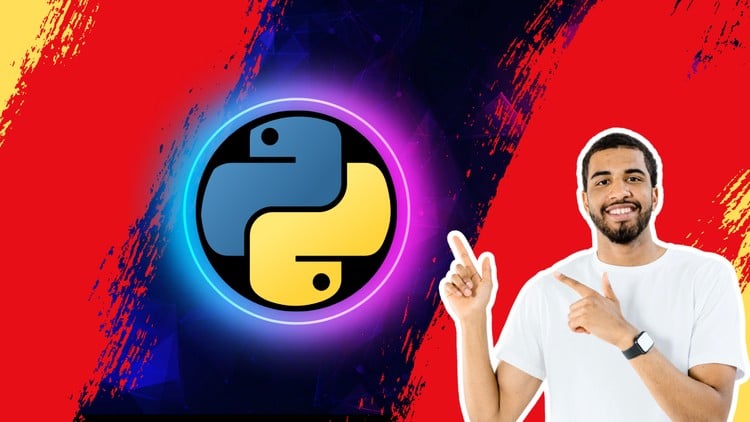
Complete Python Guide for Data Science, Machine Learning, AI, and Automation with Practical Projects
⏱️ Length: 7.7 total hours
👥 21 students
🔄 October 2025 update
Add-On Information:
Note➛ Make sure your 𝐔𝐝𝐞𝐦𝐲 cart has only this course you're going to enroll it now, Remove all other courses from the 𝐔𝐝𝐞𝐦𝐲 cart before Enrolling!
-
Course Overview
- This comprehensive program is your definitive pathway to mastering Python’s multifaceted applications across the most in-demand technological domains.
- Designed for aspiring data scientists, machine learning engineers, and automation specialists, this course bridges foundational knowledge with cutting-edge industry practices.
- Embark on a transformative learning journey that transcends basic syntax, diving deep into the practical deployment of Python for solving complex real-world challenges.
- Discover how to leverage Python as a powerful instrument for data-driven decision-making, intelligent system development, and streamlining operational inefficiencies.
- Position yourself at the forefront of innovation by understanding the symbiotic relationship between data, artificial intelligence, and efficient computation.
- Gain an invaluable understanding of how Python forms the backbone for building scalable, intelligent, and autonomous solutions in today’s rapidly evolving tech landscape.
- This course is meticulously structured to guide you from foundational concepts to advanced architectural patterns, ensuring a holistic grasp of the Python ecosystem relevant to modern industry needs.
-
Requirements / Prerequisites
- Basic Computer Literacy: Familiarity with operating a computer, managing files, and basic internet navigation is expected.
- Enthusiasm for Problem Solving: A genuine interest in tackling complex problems with code and an eagerness to learn new paradigms.
- Commitment to Practice: Willingness to actively engage with coding exercises and practical scenarios beyond the lecture material.
- No Prior Python Experience Required: This course accommodates absolute beginners, building proficiency from the ground up.
- Reliable Internet Connection: Essential for accessing course materials, supplementary resources, and participating in any community discussions.
- Access to a Computer: A desktop or laptop capable of running standard development environments and Python libraries.
-
Skills Covered / Tools Used
- Integrated Development Environments (IDEs): Proficiency in setting up and navigating professional coding environments like VS Code or Jupyter Notebooks.
- Version Control Fundamentals: Introduction to essential practices of code management and collaboration using systems like Git.
- Advanced Data Wrangling: Methodologies for cleaning, transforming, and preparing diverse datasets for analytical and model-building purposes.
- Applied Statistical Analysis: Practical application of statistical concepts using Python to draw meaningful inferences from data.
- Algorithm Selection & Tuning: Understanding machine learning algorithms and strategies for selecting and optimizing them for specific problem types.
- Effective Feature Engineering: Techniques for creating new, impactful features from existing data to enhance model performance.
- Web Scraping Essentials: Introduction to gathering data from the web, demonstrating Python’s versatility in data acquisition.
- API Integration: Learning to connect Python applications with external services and data sources via Application Programming Interfaces.
- Cloud Deployment Concepts: Awareness of how Python projects can interact with cloud platforms for deployment and scalability.
- Ethical AI Principles: Discussions around bias, fairness, and transparency in machine learning models, fostering responsible development.
- Basic Time Series Analysis: Techniques for working with time-dependent data, crucial for forecasting and sequential pattern recognition.
- Data Storytelling with Reports: Skills in creating dynamic, code-driven reports and dashboards to effectively communicate insights.
-
Benefits / Outcomes
- Career Transformation: Acquire the technical prowess and confidence to pursue lucrative roles in data science, machine learning, and automation engineering.
- Portfolio Development: Build a robust collection of practical projects that demonstrably showcase your advanced Python skills to potential employers.
- Problem-Solving Acumen: Cultivate a systematic approach to analyzing complex problems and architecting elegant, Python-based solutions.
- Enhanced Earning Potential: Equip yourself with highly sought-after skills that are consistently ranked among the highest-paying in the tech industry.
- Innovation Catalyst: Empower yourself to conceptualize and implement novel solutions, driving efficiency and intelligent capabilities within any organization.
- Foundation for Specialization: Lay a solid groundwork enabling you to further specialize in areas like deep learning, natural language processing, or advanced robotics with Python.
- Critical Thinking: Develop the ability to critically evaluate data, model outputs, and automated processes to ensure accuracy and reliability.
- Industry Readiness: Gain practical insights and methodologies that align directly with current industry standards and best practices for Python development.
-
PROS
- Holistic Curriculum: Uniquely integrates essential disciplines – Data Science, ML, AI, and Automation – under one comprehensive Python umbrella.
- Practical Project Focus: Emphasizes hands-on learning, ensuring you build tangible skills immediately applicable in professional settings.
- Beginner-Friendly Yet Advanced: Caters to a broad audience, guiding novices to expert-level understanding without overwhelming.
- Up-to-Date Content: Promises an October 2025 update, indicating commitment to relevant and current industry knowledge.
- High-Demand Skills: Concentrates on technologies that are consistently in high demand across various global industries.
-
CONS
- Intensive Time Commitment: While comprehensive, the breadth of topics in 7.7 hours may require significant self-study and practice for mastery.
Learning Tracks: English,Development,Programming Languages
Found It Free? Share It Fast!